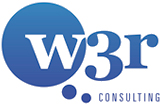Improving Value-based Healthcare by Hiring the Best Outreach Talent
The idea at the heart of the value-based healthcare model – that prevention now is preferable to finding a cure later – is naturally suited to healthcare payors. Preventative healthcare services help to maintain members’ long-term wellness and limit instances of expensive and avoidable acute care. The measurements that best gauge whether preventative care is working – HEDIS and Star Ratings – need to be evaluated by payors on a regular basis to ensure their best performance. However, improving HEDIS measures and Star Ratings requires a trained and personable workforce to accomplish that goal efficiently and accurately.
Because of deadlines for open enrollment and one-off changes to regulatory policies, your contingent workforce needs to scale rapidly, often at times when other healthcare payors are hiring care specialists in large quantities. From our experience with project based staffing, we have determined that hiring the right professionals is central to improving value-based healthcare. Here are the key strategies to keep in mind as you strive to hire and retain a workforce capable of promoting improved care quality measures.
Identify First-Rate Candidates
Maximizing value-based care metrics during open enrollment requires consistent delivery from all team members. That calls for payors to fine-tune projections of ideal candidate profiles prior to hiring as a way of decreasing inefficiencies from attrition. Which qualities contribute the most success to your value-based healthcare model? Here are a few we keep front-of-mind as we help our clients to create candidate profiles:
- Up-to-date on value care metrics – Healthcare knowledge is a given, but up-to-date knowledge of HEDIS measures, Stars Ratings, or other measures might not be. Each year brings new changes to the dimensions of quality measurements. For example, 2018 HEDIS updates have prioritized medication-assisted treatment for alcohol and opioid dependence, making outreach to members with a history of substance abuse an opportunity for healthcare payors. Nurses, medical coders, and administrative staff need to be evaluated to see if their quality measure knowledge is current.
- Customer service experience – The old adage that you catch more flies with honey than vinegar holds true for value-based care. Members are who feel engaged by your representatives will be more compliant to make and keep preventative care appointments. Top candidates will have experience with customer service or the type of bedside manner that makes members feel comfortable and respected.
Beyond the broader qualities of an outreach representative, we make a point of searching for candidates who easily integrate into our client’s work environment. This facilitates a smoother onboarding processes and makes workforce management uncomplicated.
Create an Effective Talent Funnel
The process for finding, interviewing, and hiring a single candidate can take 23.8 business days. Imagine the length of time it can take when hiring a whole team of value-based care specialists, and you can see the importance of monitoring talent in advance of positions. The strict timetables of these projects do not leave much of a margin for error, so payors are best served by having an efficient talent funnel that delivers candidates as needed. Here are a few factors that help maintain a better talent pipeline:
- Diversified talent sources – Hiring candidates at the right time requires a proficiency with leveraging a range of talent sources all at once. Running candidate search campaigns through networking platforms, referral programs, job boards, and other sources simultaneously helps to sustain the flow of candidates. Though it can be taxing to implement these strategies all at once, it ensures that you find the right workforce in advance of the demand.
- Relationship building – Since deadlines for HEDIS or Star Ratings can create a hiring frenzy, payors need to build loyalty and trust with prospective candidates before enrollment initiatives. Additionally, keeping in communication with prospects helps to track who will be available when you do begin to hire for the project, making it easier and faster to acquire your workforce.
Proactive recruiting activities like these help to attract professionals and ramp up with the fewest barriers to your success.
Focus on Results Not Management to Improve Value-based Healthcare
Once a contingent workforce is found and hired, the barriers to efficiency do not end. Onboarding and contingent workforce management limit the time you can dedicate to your primary focus: defining goals, setting processes, and mentoring your team to improve value-based healthcare. Trusting onboarding, workloads, and operations to a staffing and recruiting firm can save time and energy while boosting the success of your project.
Want to learn more about how a staffing and recruiting partner can improve value-based care? Our eBook “The Scale, Speed, and Quality of a Project Based Staffing Partner” presents examples of how our service has been crucial to clients during HEDIS open enrollment (among other project based staffing scenarios).
[fusion_text]
[/fusion_text]
Related Articles:
3 Reasons Companies Are Having a Harder Time Recruiting Tech Talent
The Scale, Speed, and Quality of a Project Based Staffing Partner
Improving HEDIS Measures: How to Optimize Your Member Engagement
[/fusion_builder_column][/fusion_builder_row][/fusion_builder_container]


